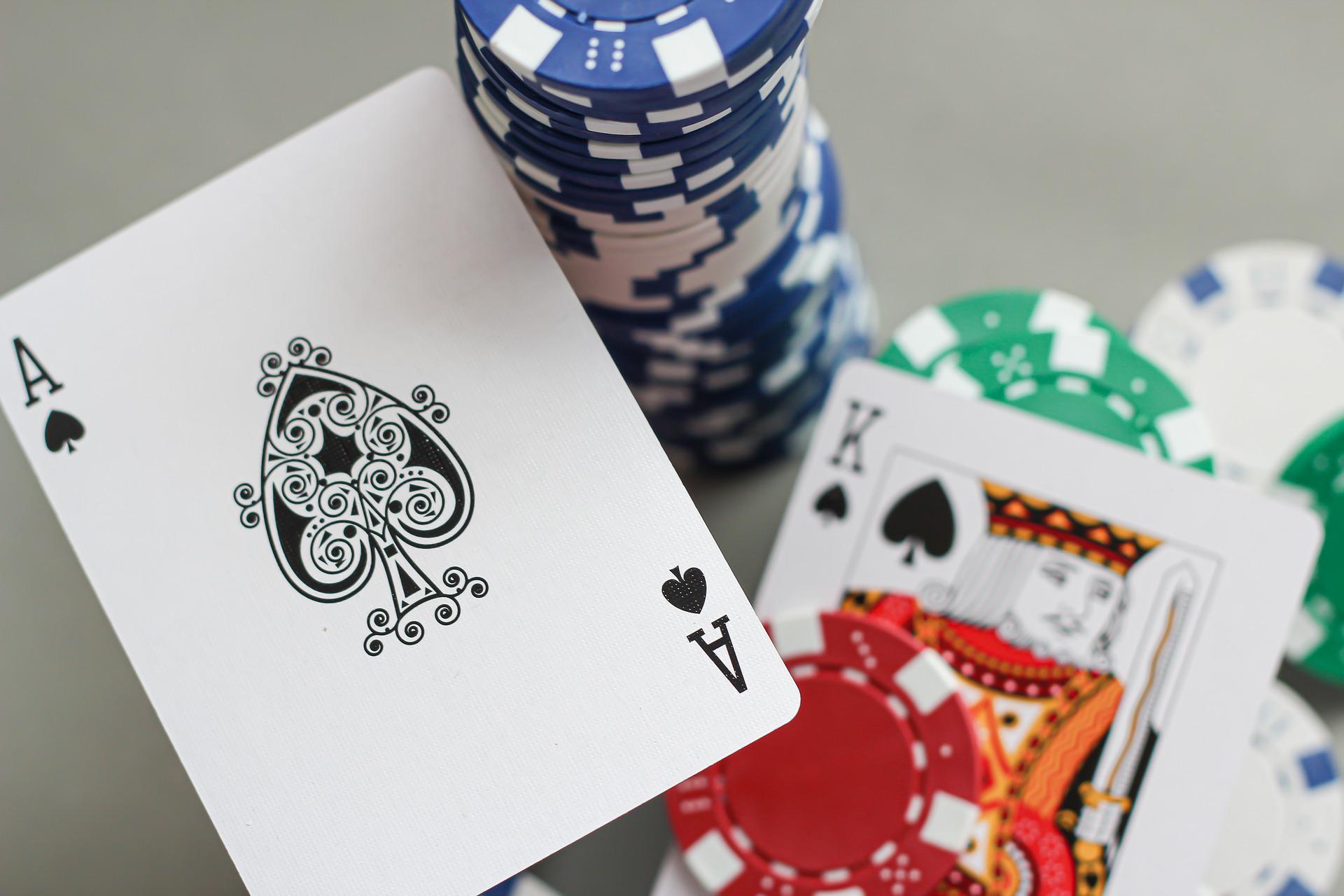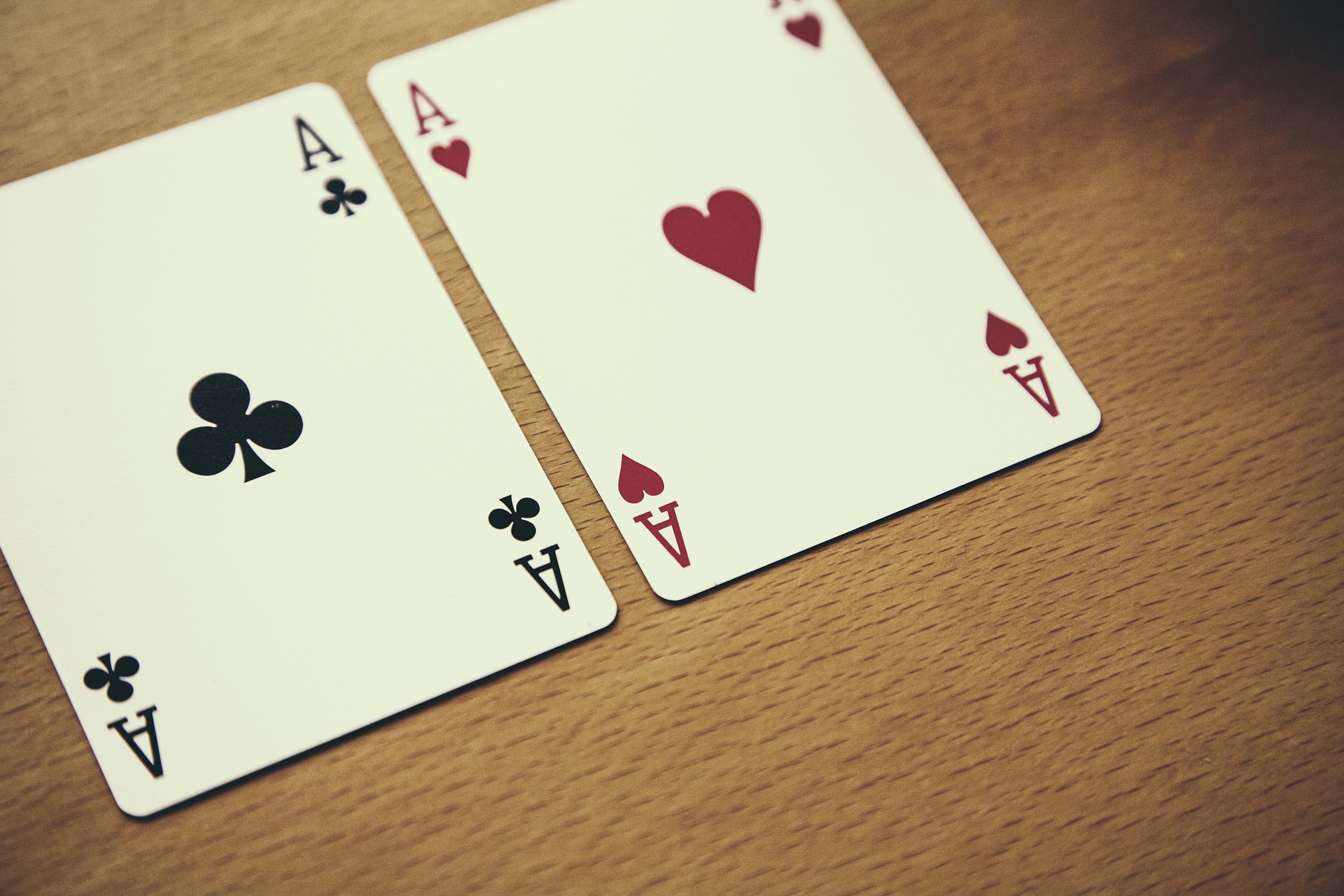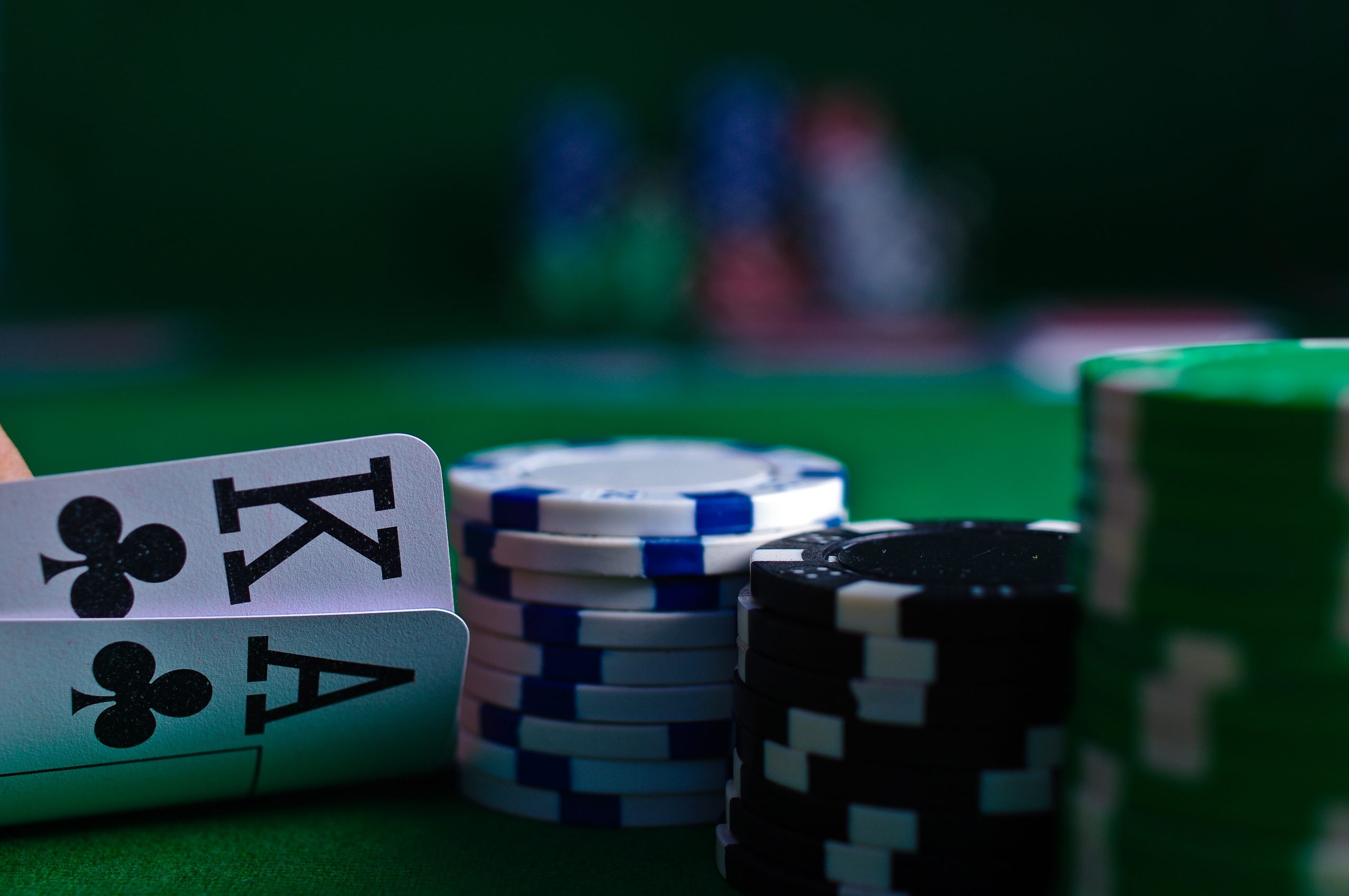When it comes to "top" behavior in Texas Hold'em, it's always better to avoid it early than to be caught off guard now and regret it later. If you can spot these "upper" signs early, you can save a lot of time, money, and unnecessary tragedies. To do this, you have to learn to identify the triggers on your head—those things that make you uncomfortable and unpleasant for whatever reason in Texas Hold'em have the power to turn you on.
When it comes to "top" behavior in Texas Hold'em, it's always better to avoid it early than to be caught off guard now and regret it later. If you can spot these "upper" signs early, you can save a lot of time, money, and unnecessary tragedies. To do this, you have to learn to identify the triggers on your head—those things that make you uncomfortable and unpleasant for whatever reason in Texas Hold'em have the power to turn you on.

Overhead triggers can generally be divided into two categories: a. what happens in Texas Hold'em; b. external factors that are not technically related, outside of the table, but more likely to get you out of control.
1. External factors
Let's look at external factors first. They are the trigger for emotional outbursts. Any outside influence—family stress, financial worries, lack of adequate sleep, or alcohol, drugs, etc.—can make you more prone to overwhelm than other situations. While these external factors won't be the ultimate catalyst, they are responsible for a large part of initiating your Overhead State. If you come to the poker table already feeling all kinds of problems, such as at work or with your spouse, and you decide to have a drink to adjust the situation, when something goes wrong at the poker table , you will easily enter the top state immediately.
We can think of external factors as the calm before the storm above. When you combine stress and alcohol in Texas Hold'em, it's like a cold high pressure system moving in from the north and colliding with a tropical low pressure system coming from the south. All it takes now is a breeze - a bad beat by your opponent - and you're in for a full-blown storm. Without these external factors as a fuse, this BB overtake might not have had much impact on you.
2. Direct trigger point
When you're in Texas Hold'em, you play well, maybe when the cards don't go your way, you have to put in a little effort to control your emotions, but you do it. Everything is still under your control. Until something goes wrong again and you start to get on top. Overhead triggers are different for everyone, but what all triggers have in common is that they are the exact opposite of what you expect from the game. The end result is that the rational thinking part of your brain is erased, leaving your emotions to control decision-making.
A. Being overtaken by a small probability (bad beat)
From rational and logical use of their own card skills based on experience, to playing with anger and luck. The most common culprit for this shift is bad beat. Whether it's the lowest level "fish table" or the highest stakes professional poker matchup, from the common "This is Texas" to the bad beat of 2 outs that destroy the soul Beats are an inevitable part of Texas Hold'em. This is why bad beats are the most common overhead trigger point in Texas Hold'em, and why you must master how to control your emotions to deal with them.
B. Poor hand quality and low hit rate
The second common trigger point is not having a potable hand for a long time. Even the most patient hold'em player can't help but crumble after endless bad starting hands, unrelated flops, and draws that never hit. It's a "last straw over the camel" type of trigger point where the frustration builds up as you fold over and over until it becomes unbearable.
In online Texas Hold'em, the game is played at the speed of light, and multi-table games can be seen everywhere at the same time, and the situation of "no card" is relatively rare. But because you're going to be playing more hands in the same amount of time, you're going to have many, many bad beats, more than enough to make up for "no hand". Online Texas Hold'em, more hands, looser opponents, it's no longer a question of whether you'll get a bad beat, the question is when, in what style, and how many times. Plus, losing all your poker money online is just a few clicks away, so the ability to deal with your emotions becomes even more important than offline Texas Hold'em.
Anything that gets you emotional at the poker table has the potential to cause it. Excessive wins can do the same, and it affects your otherwise balanced play. The same can happen if you lose a large pot because of a dropped call or an accidental wrong click while playing online hold'em. As a potential overhead trigger point, it is also worth mentioning an opponent who likes to irritate, showing off his hand after a successful bluff and constantly making verbal provocations. But usually, trash-talking opponents don't really piss you off unless they keep winning and you keep losing. This brings us back to the issue of bad beats and bad hands. These are the top emotional triggers you need to be aware of.
3. How to effectively avoid "overhead"
By far, the most effective way to fight the bully is to not get the bully in the first place. Of course, that's easier said than done, but it all comes back to the old adage: knowledge is power. To protect yourself from the emotions above you, you have to understand yourself, understand Texas Hold'em.
A. Self-awareness
This can be difficult and difficult to do well because we humans have an incredible talent for deceiving ourselves. That's why it's so important to be aware of your own overhead trigger points. Of all the things that can go wrong in Texas Hold'em, what do you find most disturbing? Distracting you enough to throw all your hard-earned poker knowledge out the window? While a poker coach or a friend who plays Texas may help you find some of your weak spots by watching your play, only you can really identify the most precise trigger points to get you going. Once you understand your overhead triggers, you will be in a stronger coping position to take control of your overhead emotions before they have a chance to take over you completely.
B. Learn Texas Hold'em knowledge and strategy
The more poker knowledge and strategy you know, the harder it will be for you to deviate from the correct play. Make it a habit to consider every angle before making any important decision: position, effective stack size, pot size, odds, opponent's betting pattern, play style, etc. Turn this habit into a muscle-memory-style instinct that works even during times of stress. This knowledge doesn't provide you with a foolproof protection against your emotions, but it definitely acts as a very effective buffer.
C. Understanding Probability and Odds
Remember, the No. 1 trigger point of the top emotion is to be overtaken by the opponent with a small probability (bad beat). But what's really disgusting is that in fact, the probability of the vast majority of bad beats is not as low as imagined. Texas Hold'em players have a natural tendency to overestimate the odds of winning their leading hand, so it feels very "unfair" to overtime when their opponent draws.
But in fact, many "good hands" are often overtaken, and these "leading" hands actually have only a small advantage in terms of probability. Knowing the common Texas hold'em odds certainly helps. Example: Against an opponent with 4 random hands, a preflop all in with pocket aces will only win the pot about 56% of the time. In other words, this means that AA, the best starting hand in Texas Hold'em, loses 2 out of every 5 preflop all ins against 4 opponents. Even if you reduce the number of opponents to 2, AA will still lose 1 in every 4 preflop all ins. It's annoying, but it's not a reason to have sympathy or join the "top club".

Overhead emotions can be pointless waste, and if you are initially triggered by a player with poor skills and stupid play, then your stupidity will increase exponentially after you overtake. Other times, a bad beat is the result of a bad play, usually not being aggressive enough to lead and allowing the opponent to draw a hand for free or cheap.
But you can avoid this emotional trap by teaching yourself about poker. If you know ahead of time that your leading hand will probabilistically often fall victim to a bad beat (such as a flush draw that overtakes your top pair or overpair every third time), when it does, you Not surprised or upset - let alone crashing. If you realize that you made a mistake in the game, don't start complaining because your opponent caught your mistake and won, you should admit your mistake and learn from it to gain experience and improve your game.
4. How to deal with emotions
Finally, when the little poisonous claws of your emotions have penetrated your body, how do you fight it? If your insight and level head can recognize when you are in an overhead situation, you are already stronger than most overhead victims. But you still have the question of what to do in that moment.
A. Stop the game
Simple and effective, that's it. Get up and leave the table when you realize you're on top. Your effective defense right now is to stop the train from derailing. You have to regain your composure, it will take time. If you have extraordinary self-discipline, you may calm down after five or ten minutes away from the table.
What you do in this moment will determine the outcome of the entire hand, and it is crucial not to let yourself lose control. If you have self-discipline, you can take a break. Here are some ways to help you control your emotions:
- First, get up from the poker table, take a walk or go to the bathroom to cool off.
- Don't use your down time to call someone to discuss the hand that got you on top - it will only make you more emotional than calm.
- Don't try to chat with your opponent, most of the time your opponent's response will not help you, and it may also cause arguments, which is even more detrimental to your emotional recovery.
- If you can't keep the right mindset, settle your chips and stop playing - you may need a long break to get back to your best game.
The length of adjustment you need depends on your personal personality and the severity of the overhead. If you're only slightly overboard say, you find yourself making a loose call or two ten minutes should be enough to get your head back on track. But if you're completely out of control, a ten-minute break won't do the trick. You may need to be away from the table for a day, or even longer.
Again, it comes down to self-awareness, a judgment of your own emotions. When you get back into the game again, you have to be very honest in assessing whether you are ready to rejoin the game. If you're not 100% sure, just wait a little longer, Texas Hold'em is still available tomorrow.
B. Your Table Image
Another reason you should stand up and stop playing is because your table image has changed. When you're on top, any decent opponent will find your already unbalanced play and take advantage of it. Even if you take a short break to get yourself off the top of your head, when you get back to the table, you'll have a table image issue to be aware of. If you play online Texas Hold'em, you might consider switching tables.
C. When you can't stop the game
Of course, if you're playing a Texas Hold'em tournament, you don't have the option of stopping the game other than a short break. But as long as you can afford to lose some blinds and antes, take a break. Getting rid of your emotions and getting back to your best game is more important than your few big blinds and small blinds. Go for a walk and take your attention away from the things that are distracting you. Give yourself a boost and remind yourself that those who bad beat you are putting their money in the worst possible place and just got lucky once. Just to clear your head and get back into the game of Texas Hold'em.
D. Set Stop Loss Limit
For some poker players, the stop-loss mechanism is an effective tool against the upper hand. In theory, setting a stop loss line is not necessary, as poker players should not be result-oriented. But in reality, if you lose three buy-ins in a row, you're at least a little over the top or your over-the-top sentiment is lurking around the corner, just waiting to lose another hand. So unless you have the ability to recognize the signs above you and stop your game in time, setting a stop-loss line can at least provide effective protection.
What you shouldn't do is be preoccupied with recovering your losses, never do it. Texas Hold'em graveyards are littered with the bones of players who went bankrupt for "backwater." It is more reckless and foolish to think that some players will temporarily step up to the high stakes games in order to win back their losses faster, which will likely turn an acceptable loss into a poker bankroll. Bankruptcy disaster.
E. Texas Hold'em is long term
You've heard it before, and you'll hear it again: Texas Hold'em is a long process. This bit of poker wisdom is the key to overcoming it. If you can focus on the big picture with a long-term focus you'll be more likely to escape short-term misfortunes in the game. When you're playing hold'em, it's easier for you to stop and calm down and confidently believe that you'll win your money back when your mind gets back to normal, rather than getting caught up in the desperate urge to win right away water. Keeping a record of every profit and loss and charting your long-term results are effective ways to achieve this. Because if you don't learn to control your emotions above, it will only be a matter of time before your emotions control you.
